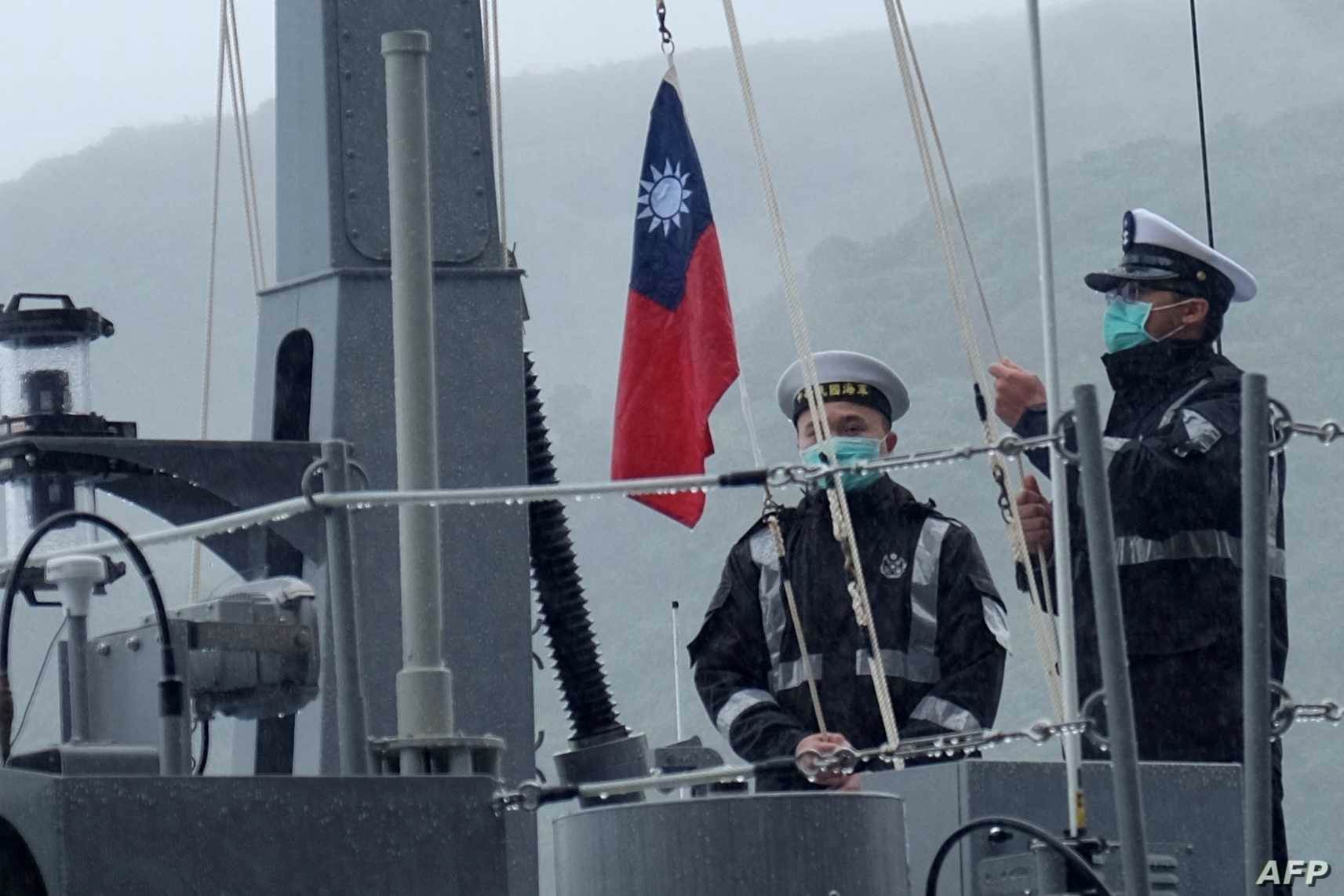China: Military support for Taiwan will bring "worst consequences"
China warns against helping separatist movements in Taiwan.
-

Taiwan applies to join CPTPP. (AFP)
The Chinese government on Saturday said that any country supporting Taiwan militarily will encounter the "worst consequences" adding that "no one and no force" will be able to stop the Chinese Communist Party if they were to take action against the island.
Although tensions between China and Taiwan were escalating over recent months, they've come into a different spotlight as Russia authorized its special military operations.
This year, Taiwan has boosted its yearly missile production capacity, which came after an announcement that the country will provide an extra $6.8 billion military budget over the span of the next 5 years.
Read more: China opposes separatist activities, foreign interference in Taiwan
According to Sky News Australia, China's warning came one day after the Chinese president, Xi Jinping, held diplomatic talks with Canberra.
The Chinese ministry of defense accused Australian Minister of Defense, Peter Dutton, of "ideological bias" after Dutton promised to do "whatever we can" to protect Taiwan from a Chinese attack.
According to The New York Times, after Russia attacked Ukrainian infrastructure facilities, slogans on social media propagated, "Today, Ukraine, tomorrow, Taiwan!"
Read more: Taiwanese semiconductor producer suspends supplies to Russia
Pentagon Official terms Ukraine a ‘Case Study’ for Taiwan
A top Pentagon official heading US President Joe Biden's National Defense Strategy planning has told US lawmakers that upcoming plans for defending Taiwan should include lessons learned from the current situation in Ukraine, with a focus on guerrilla tactics.
Mara Karlin, assistant secretary of defense for strategy, plans, and capabilities, told the Senate Foreign Relations Committee that “the situation we’re seeing in Ukraine right now is a very worthwhile case study for them about why Taiwan needs to do all it can to build asymmetric capabilities, to get its population ready so that it can be as prickly as possible should China choose to violate its sovereignty.”
Asymmetric warfare, also known as irregular warfare, refers to insurgent or guerrilla tactics in which a smaller, dispersed, and mobile force defends the territory against a larger invading force.
Congress defined "defensive asymmetric capabilities" in the 2022 National Defense Authorization Act (NDAA), the massive law passed in December 2021 that funds the Pentagon budget, as "the capabilities necessary to defend Taiwan against conventional external threats, including coastal defense missiles, naval mines, anti-aircraft capabilities, cyber defenses, and special operations forces."
On his account, a spokesperson for the Chinese embassy in Washington, DC, Liu Pengyu told Reuters that Karlin’s proposal “would not only push Taiwan into a precarious situation but also bring unbearable consequences for the US side.”
While the United States has long supplied the Taiwanese government with weapons of war, the pace of armament sales rapidly increased after 2017. Between 2017 and 2021, the US sold $18.3 billion in weapons to Taiwan, a trend that Biden has continued since taking office in January 2021.

 3 Min Read
3 Min Read










